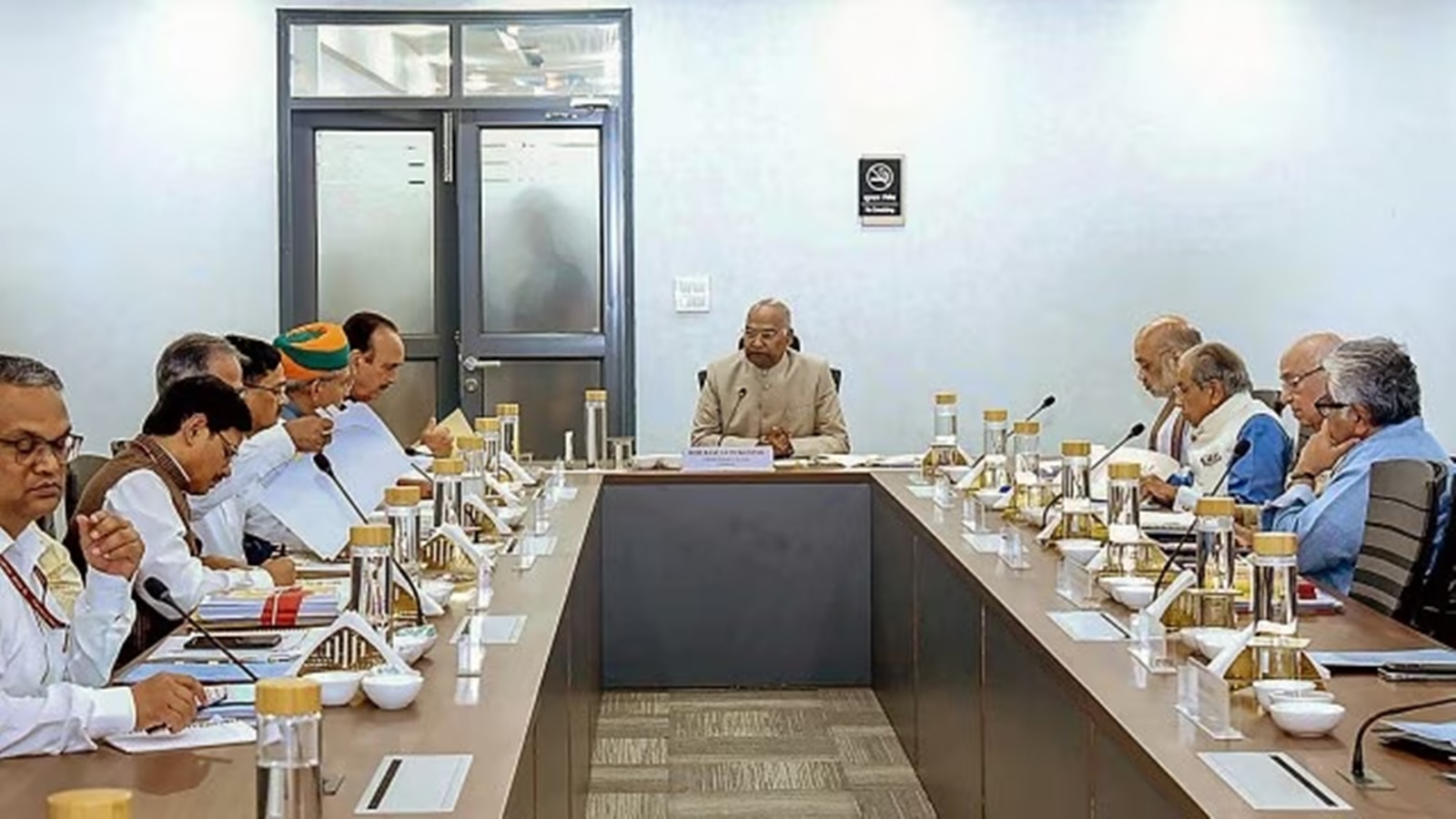From UPSC perspective, the following things are important :
Prelims level: S.R. Bommai case
Mains level: potential consequences of One Nation, One Election

Central Idea:
The article discusses the formation and potential implications of the ‘High Level Committee on One Nation, One Election’ set up by the Union Government in September 2023. It delves into the reasons for and against the concept, focusing on the financial aspects and governance downtime. The author raises legal concerns, particularly regarding the constitutional autonomy of states, linguistic bias in consultations, and the role of the Election Commission. The looming possibility of a constitutional showdown in the Supreme Court is emphasized, drawing parallels with the U.S. case of Baker v. Carr.
Key Highlights:
- Formation of the ‘High Level Committee on One Nation, One Election’ chaired by former President Ramnath Kovind.
- Reasons supporting the concept include reducing election expenses and minimizing governance downtime caused by the Model Code of Conduct.
- Opposition argues that democratic processes, including elections and the Model Code of Conduct, are essential for a functioning democracy.
- Legal concerns raised, citing potential violation of state autonomy and constitutional provisions, particularly as stated in the S.R. Bommai case.
- The linguistic bias in consultations, with the committee’s website available only in English and Hindi, is highlighted.
- The Election Commission’s seemingly passive role and lack of involvement in the process are questioned.
Key Challenges:
- Constitutional and legal concerns regarding the potential alteration of the duration of State Legislative Assemblies.
- Linguistic bias in consultations, limiting the inclusivity of the decision-making process.
- Potential compromise of the Election Commission’s independence and autonomy.
- Balancing financial considerations with the fundamental principles of democracy.
- The challenge of ensuring a fair and unbiased decision-making process amid political interests.
Key Terms and Phrases:
- One Nation, One Election
- High Level Committee
- Model Code of Conduct
- S.R. Bommai case
- Constitutional autonomy
- Governance downtime
- Baker v. Carr moment
- Linguistic bias
- Election Commission
- Constitutional showdown
Key Quotes:
- “The cost of holding free and fair elections… is a price that can never be high.”
- “The introduction of a common election process would necessarily require alteration of the existing duration of a number of State Legislatures.”
- “Similar to demonetisation, when the Reserve Bank of India was kept in the dark, the Election Commission seems to be a silent spectator.”
Key Statements:
- “The Supreme Court would be called upon to determine the ultimate fate of Indian democracy.”
- “The potential alteration of the duration of State Legislatures would be anti-federal and unconstitutional.”
- “The stage is set for a constitutional showdown in the not-too-distant future.”
Key Examples and References:
- Baker v. Carr case in the U.S. as a reference for the potential role of the Supreme Court in a constitutional showdown.
- Comparison with demonetization to highlight concerns about the Election Commission’s apparent lack of involvement.
Key Facts and Data:
- The estimated cost of the 2014 general elections was ₹3,870 crore.
- The High Level Committee’s website is available only in English and Hindi.
Critical Analysis:
The article critically examines the potential consequences of One Nation, One Election, questioning its feasibility and highlighting legal and constitutional concerns. It underscores the importance of democratic processes and the need for the Supreme Court to play a pivotal role in preserving India’s constitutional architecture.
Way Forward:
- Ensure comprehensive and inclusive consultations in multiple languages to address linguistic bias.
- Strengthen the autonomy of the Election Commission and ensure its active participation in decision-making processes.
- Balance financial considerations with the preservation of democratic principles.
- Address legal concerns, particularly those related to state autonomy and constitutional provisions.
- Encourage public discourse to raise awareness and engage citizens in the decision-making process.
Get an IAS/IPS ranker as your 1: 1 personal mentor for UPSC 2024
